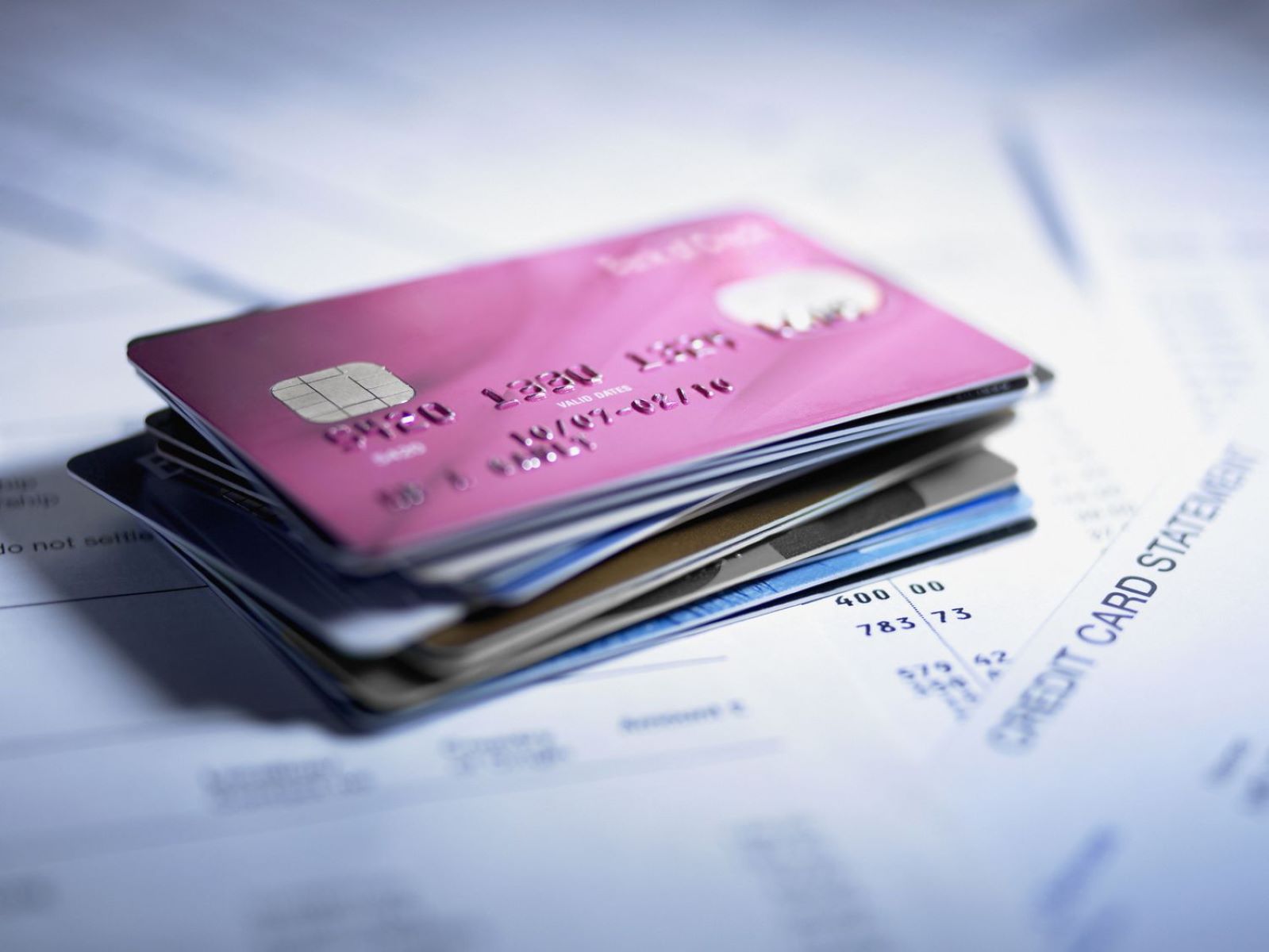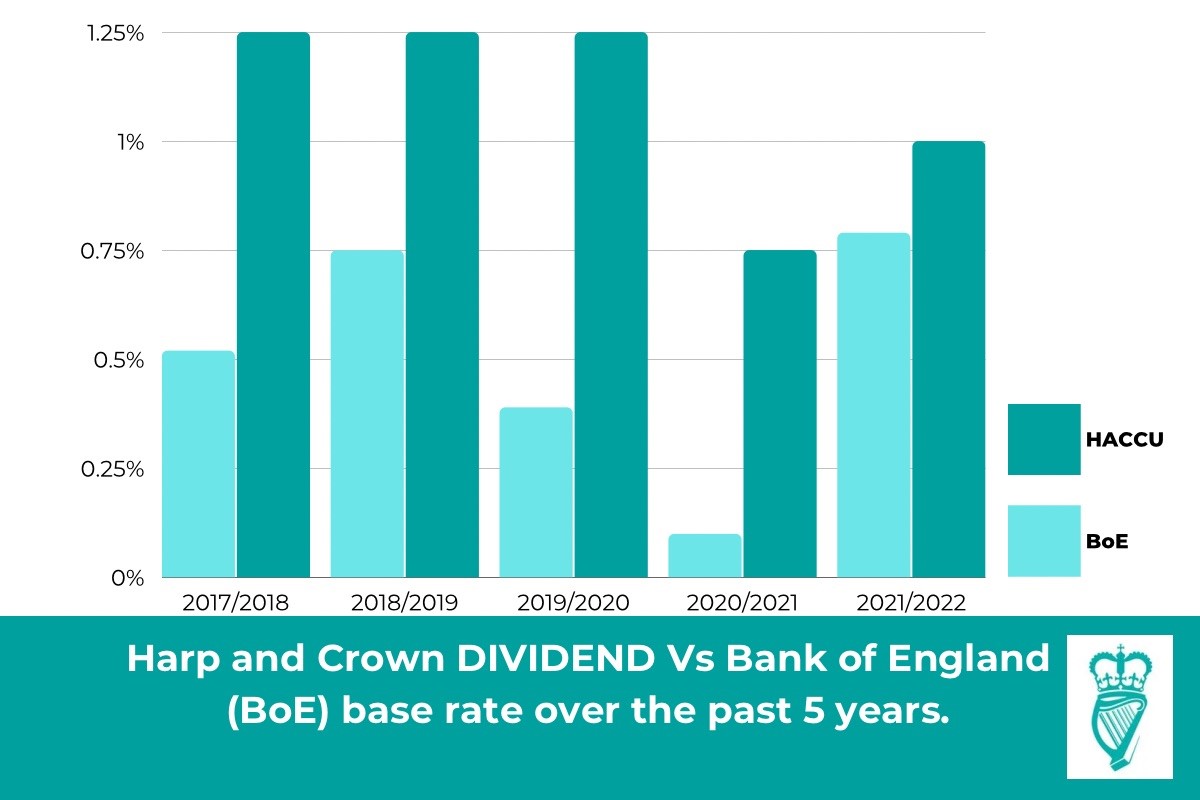

Finance
How To Get A Business Loan Without Collateral
Modified: December 30, 2023
Looking for financing options for your business without the need for collateral? Discover effective strategies to secure a business loan without collateral and fuel your financial growth.
(Many of the links in this article redirect to a specific reviewed product. Your purchase of these products through affiliate links helps to generate commission for LiveWell, at no extra cost. Learn more)
Table of Contents
- Introduction
- Understanding Business Loans Without Collateral
- Types of Business Loans Without Collateral
- Eligibility Criteria for Business Loans Without Collateral
- Documentation Required for Business Loans Without Collateral
- Steps to Get a Business Loan Without Collateral
- Pros and Cons of Business Loans Without Collateral
- Alternatives to Business Loans Without Collateral
- Conclusion
Introduction
Securing funding is often a crucial step for businesses looking to start, grow, or expand their operations. However, traditional business loans can be challenging to obtain due to the stringent requirements, such as collateral. This is where business loans without collateral come into play.
A business loan without collateral is a type of financing that allows entrepreneurs and small business owners to access funds without having to pledge any assets as security. This provides flexibility and convenience for businesses that may not have valuable assets or are not willing to risk their personal belongings.
Business loans without collateral offer a viable alternative for businesses seeking financial assistance. They provide the opportunity to fund various business needs, such as purchasing inventory, investing in equipment, expanding marketing efforts, or hiring additional staff.
This article will delve into the details of business loans without collateral, discussing the different types available, the eligibility criteria, documentation requirements, and the steps to secure such loans. In addition, we will explore the pros and cons of these loans and provide alternative financing options.
Whether you are a startup looking to get off the ground or an existing business in need of additional capital, understanding business loans without collateral will empower you to make informed financial decisions and explore options that best suit your needs.
Understanding Business Loans Without Collateral
Business loans without collateral are a type of financing that do not require borrowers to provide any assets as security for the loan. This means that the lender does not have a claim on specific assets in case of default. Instead, the loan is typically granted based on the creditworthiness and financial strength of the business.
These loans are particularly beneficial for businesses that may not have valuable assets to offer as collateral or are hesitant to put personal property at risk. They provide access to much-needed capital without the added burden of securing the loan against physical assets.
Business loans without collateral can take different forms, such as term loans, lines of credit, or invoice financing. The repayment terms and interest rates depend on factors such as the borrower’s credit history, business revenue, cash flow, and industry risk.
One key aspect to consider is that business loans without collateral typically involve higher interest rates compared to traditional loans with collateral. This is because lenders assume a higher level of risk when providing financing without a tangible asset as security. However, the interest rates can vary depending on the lender and the borrower’s financial profile.
It is important for businesses to thoroughly understand the terms and conditions associated with business loans without collateral before committing to the loan. Evaluating the interest rates, repayment terms, and any other fees or charges involved will help determine if the loan is suitable for the business’s financial situation and needs.
Another important factor to consider is the impact of borrowing on the business’s cash flow. It is crucial to ensure that the loan payments can be comfortably managed alongside other financial obligations and day-to-day expenses.
Overall, understanding business loans without collateral is essential for businesses seeking financing options. By assessing the pros and cons and evaluating the specific needs and financial capabilities of the business, entrepreneurs can make informed decisions regarding the suitability of such loans and explore alternative options if necessary.
Types of Business Loans Without Collateral
Business loans without collateral come in various forms, catering to different business needs and financial situations. Here are some common types of business loans without collateral:
- Unsecured Business Loans: Unsecured business loans are a popular type of loan that do not require any collateral. These loans are typically provided based on the borrower’s creditworthiness and the financial health of the business. Interest rates for unsecured business loans may be higher compared to loans with collateral, but they provide the flexibility of accessing funds without risking assets.
- Lines of Credit: A line of credit is a revolving credit facility that allows businesses to access a predetermined amount of funds when needed. This type of loan does not require collateral and is often used to cover short-term expenses, manage cash flow fluctuations, or seize new business opportunities.
- Merchant Cash Advances: Merchant cash advances are an alternative financing option where lenders provide a lump-sum payment in exchange for a percentage of a business’s future sales. These loans do not require collateral and are based on the strength of the business’s revenue stream.
- Invoice Financing: Invoice financing, also known as accounts receivable financing, allows businesses to borrow against their outstanding invoices. Lenders advance a portion of the invoice amount, often up to 85%, and collect the payment directly from the customer. This type of loan does not require collateral, as the invoices themselves act as a form of security.
- Equipment Financing: Equipment financing allows businesses to acquire equipment or machinery without putting up collateral. The equipment being financed acts as the security for the loan. This type of loan is typically helpful for businesses in need of specific equipment to operate or expand their operations.
It is essential for businesses to assess their specific financing needs and choose the type of loan without collateral that best aligns with their requirements. Understanding the terms, interest rates, repayment terms, and any additional fees associated with each type of business loan will help make an informed decision.
Working with a reputable lender and comparing different loan offers will further facilitate the selection process. Consulting with financial professionals or seeking advice from business advisors can also provide valuable insights into the most suitable type of loan for the business’s unique circumstances.
Eligibility Criteria for Business Loans Without Collateral
While business loans without collateral do not require the pledging of assets, lenders still have specific eligibility criteria that businesses must meet to qualify for these loans. Here are some common factors that lenders consider when assessing eligibility for business loans without collateral:
- Creditworthiness: Lenders often evaluate the credit history and credit score of the business and its owners. A strong credit profile demonstrates the ability to manage and repay debts responsibly, increasing the chances of loan approval.
- Business Financials: Lenders assess the financial stability and performance of the business. They may request documentation such as income statements, balance sheets, and bank statements to evaluate the business’s cash flow, profitability, and ability to repay the loan.
- Business Age and Industry: The duration of time the business has been operating is an important factor. Lenders prefer established businesses with a proven track record of financial stability. Additionally, certain industries may be perceived as higher risk, making it more challenging to qualify for a loan without collateral.
- Revenue: Lenders may analyze the business’s revenue and sales performance to assess its ability to generate sufficient income to repay the loan. Consistent and growing revenue figures can increase the likelihood of loan approval.
- Debt-to-Income Ratio: Lenders may evaluate the business’s debt-to-income ratio, which compares its existing debt obligations to its income. A lower ratio indicates a healthier financial position and may improve the chances of loan approval.
- Business Plan: Some lenders may require a well-defined business plan that outlines the purpose of the loan, the projected use of funds, and a strategic plan for repaying the loan. A comprehensive and well-presented business plan can increase credibility and improve the chances of loan approval.
It’s important to note that the specific eligibility criteria for business loans without collateral can vary among lenders. Some lenders may have more relaxed requirements, while others may have stricter criteria. Researching different lenders and their eligibility criteria will help businesses identify the lenders that align with their financial profile.
Prior to applying for a business loan without collateral, businesses should ensure they meet the lender’s eligibility requirements. Taking steps to strengthen the business’s credit profile, improve financials, and prepare a detailed business plan can enhance the chances of approval for these types of loans.
Documentation Required for Business Loans Without Collateral
When applying for a business loan without collateral, lenders typically require certain documentation to assess the creditworthiness and financial stability of the business. While the specific documentation needed may vary based on the lender and loan type, here are some common documents that businesses may be asked to provide:
- Business Financial Statements: Lenders often require recent financial statements, including income statements, balance sheets, and cash flow statements. These documents provide insights into the business’s revenue, expenses, assets, and liabilities.
- Tax Returns: Lenders may ask for several years’ worth of business and personal income tax returns. Tax returns help verify the business’s revenue and profitability while providing an overview of the owner’s financial situation.
- Bank Statements: Providing bank statements allows lenders to analyze the business’s cash flow patterns, daily transactions, and overall financial health. These statements help lenders assess the business’s ability to manage funds and repay the loan.
- Business Plan: A comprehensive business plan outlines the purpose of the loan, the marketing strategies, financial projections, and repayment plan. Lenders evaluate the feasibility of the business plan to understand the potential for success and the ability to repay the loan.
- Ownership and Legal Documents: Lenders may request documents such as business licenses, articles of incorporation, partnership agreements, or operating agreements. These documents establish the legal structure of the business and confirm ownership details.
- Personal Identification: Lenders may require personal identification documents, such as driver’s licenses or passports, to verify the identity of the business owner and ensure compliance with regulations.
It is important for businesses to gather and prepare these documents before applying for a loan. Having the necessary documentation ready in advance can streamline the loan application process and improve the chances of approval.
In addition to these documents, businesses may be asked for additional information depending on the lender’s requirements and the specific circumstances of the loan application. It is advisable to review the lender’s documentation checklist or consult with a loan officer to ensure all necessary documents are provided accurately and in a timely manner.
By preparing the required documentation upfront and maintaining accurate financial records, businesses demonstrate their professionalism and commitment, enhancing their credibility in the eyes of the lender and increasing the likelihood of securing a business loan without collateral.
Steps to Get a Business Loan Without Collateral
Securing a business loan without collateral involves a series of steps to ensure a smooth and successful application process. Here are the key steps to follow:
- Evaluate Your Funding Needs: Start by assessing your business’s financial requirements. Determine how much funding you need, the purpose of the loan, and the specific terms and conditions you are looking for.
- Research Lenders: Look for lenders that offer business loans without collateral. Research their reputation, interest rates, loan terms, and eligibility criteria. Compare multiple lenders to find the one that best suits your needs.
- Gather Documentation: Prepare all the necessary documentation required by the lender. This typically includes financial statements, tax returns, bank statements, business licenses, and a detailed business plan. Ensure that your documentation is accurate, up to date, and organized.
- Review Credit Profile: Check your personal and business credit scores and identify any areas for improvement. Review your credit reports to ensure their accuracy and dispute any errors if necessary. A strong credit profile increases your chances of loan approval and can potentially lead to better loan terms.
- Prepare a Loan Proposal: Craft a compelling loan proposal that highlights your business’s strengths, financial stability, and future plans. Include details on how the loan will be used, how it will benefit your business, and how you plan to repay it.
- Submit the Loan Application: Complete the lender’s loan application form, providing accurate and comprehensive information. Ensure that all sections are filled out correctly, attach the required documentation, and submit the application within the stipulated timeframe.
- Wait for Loan Approval: The lender will review your application and documentation. This process may take some time, depending on the lender’s internal procedures. Be patient and prepared to promptly respond to any additional information or documentation requests from the lender.
- Review Loan Terms: Once your loan has been approved, carefully review and understand the terms and conditions. Pay attention to the interest rate, repayment schedule, fees, and any other contractual obligations. Seek clarification or legal advice if needed.
- Accept the Loan and Disbursement: If you are satisfied with the loan terms, formally accept the loan offer. The lender will then disburse the funds into your designated business bank account. Ensure that you use the funds according to the loan agreement.
- Monitor and Repay the Loan: Keep track of your loan payments, ensuring they are made on time and in full. Maintain open communication with the lender and promptly address any issues or concerns that may arise during the repayment period.
By following these steps, you can navigate the process of obtaining a business loan without collateral. It is essential to be well-prepared, organized, and diligent throughout the application process to maximize your chances of securing the funding you need for your business.
Pros and Cons of Business Loans Without Collateral
Business loans without collateral offer several advantages and disadvantages that businesses should consider before making a decision. Here are the pros and cons of these types of loans:
Pros:
- No Risk to Assets: The most significant benefit of business loans without collateral is that businesses do not have to pledge valuable assets as security. This means that if the business fails to repay the loan, the lender does not have a claim on specific assets.
- Flexible Funding: These loans provide businesses with flexibility in how they can use the funds. Whether it’s investing in equipment, expanding marketing efforts, or hiring additional staff, businesses have the freedom to allocate the funds as needed to achieve their growth goals.
- Accessible to Startups and Small Businesses: Business loans without collateral can be a viable option for startups and small businesses that may not have significant assets to offer as collateral. This opens up financing opportunities for businesses in their early stages or ones with limited physical assets.
- Faster Approval Process: Since these loans do not require the evaluation and appraisal of collateral, the approval process can be quicker compared to traditional loans. This allows businesses to access funds faster, enabling them to seize opportunities and address urgent financial needs.
Cons:
- Higher Interest Rates: One of the drawbacks of business loans without collateral is that they often come with higher interest rates compared to loans with collateral. Lenders perceive these loans as higher risk because there is no tangible asset securing the loan.
- Stricter Eligibility Criteria: Lenders may have stricter eligibility requirements for business loans without collateral. They rely heavily on factors such as creditworthiness, business financials, and industry risk. Businesses with a weaker credit profile or limited financial history may find it more challenging to qualify.
- Lower Loan Amounts: In some cases, lenders may offer lower loan amounts for business loans without collateral compared to loans secured by assets. This is to mitigate risk and ensure that the loan size aligns with the borrower’s creditworthiness and ability to repay.
- Potential Personal Guarantees: In certain instances, lenders may require a personal guarantee from the business owners or partners. This means that if the business defaults on the loan, the individuals involved become personally liable for repayment, putting their personal assets at risk.
It is crucial for businesses to carefully evaluate the pros and cons of business loans without collateral based on their unique circumstances. Consider your risk tolerance, financial position, and the potential impact of higher interest rates on your business’s cash flow. Conduct thorough research, compare loan offers from different lenders, and consult with financial professionals before making a decision.
Alternatives to Business Loans Without Collateral
While business loans without collateral can be a suitable financing option for some businesses, there are also alternative sources of funding that entrepreneurs can consider. Here are a few alternatives to business loans without collateral:
- Small Business Grants: Explore the possibility of obtaining grants specifically designed for small businesses. These grants provide financial assistance without the requirement of repayment. However, securing grants can be competitive, and eligibility criteria may vary.
- Angel Investors and Venture Capital: Angel investors and venture capital firms provide funds in exchange for equity or ownership in the business. While this alternative may involve giving up some control, it can offer significant financial support and potential mentorship opportunities for growth.
- Crowdfunding: Crowdfunding platforms allow businesses to raise capital by pitching their ideas or products to a wide network of individuals who contribute funds. This alternative not only provides funding but also helps validate the business concept and build a customer base.
- Business Lines of Credit: A business line of credit provides businesses with a revolving credit facility that they can use as needed. Unlike term loans, businesses only pay interest on the amount used, making it a flexible financing option for managing cash flow fluctuations.
- Trade Credit: Businesses can negotiate trade credit terms with suppliers, allowing them to defer payments for goods or services. This alternative can provide short-term financing without the need for collateral or traditional borrowing.
- Peer-to-Peer Lending: Peer-to-peer lending platforms connect borrowers directly with individual lenders who are willing to provide funding. These platforms often have less stringent eligibility requirements and offer competitive interest rates.
When exploring alternatives to business loans without collateral, it is important to carefully consider the terms, eligibility criteria, and potential impact on your business’s financials. Each alternative comes with its own advantages and challenges, and what works for one business may not necessarily work for another. It is advisable to assess your specific needs, conduct thorough research, and seek professional guidance to determine the best financing option for your business.
Remember, regardless of the financing option chosen, maintaining strong financial management practices, proper planning, and a well-defined growth strategy are key factors for obtaining funding and ensuring the long-term success of your business.
Conclusion
Business loans without collateral provide a valuable financing option for businesses that may not have valuable assets to offer or are reluctant to put personal belongings at risk. These loans offer flexibility and convenience, allowing businesses to access funds to support their growth, expansion, or general operations.
Understanding the different types of business loans without collateral, such as unsecured loans, lines of credit, and invoice financing, empowers entrepreneurs to make informed decisions regarding their financing needs. By assessing eligibility criteria, preparing the necessary documentation, and following the application process, businesses can increase their chances of securing the funding they require.
It is important to carefully weigh the pros and cons of business loans without collateral. While these loans do not require collateral, they often come with higher interest rates and stricter eligibility requirements. By evaluating the specific needs and financial capabilities of the business, entrepreneurs can determine if these loans align with their goals and consider alternative funding sources if necessary.
Exploring alternative financing options, such as small business grants, angel investors, crowdfunding, or trade credit, provides businesses with additional avenues to obtain capital. Each alternative comes with its own advantages and considerations, and businesses should carefully analyze the terms and suitability for their specific circumstances.
In conclusion, business loans without collateral offer flexibility and convenience for businesses seeking funding. By understanding the various types of loans available, meeting the eligibility criteria, and preparing the required documentation, businesses can navigate the application process successfully. It is important to assess the pros and cons, explore alternative funding sources, and make informed decisions to ensure the chosen financing option aligns with the business’s goals and growth plans.














